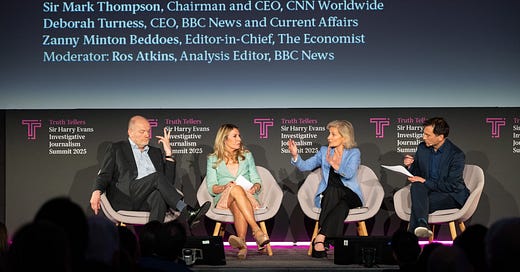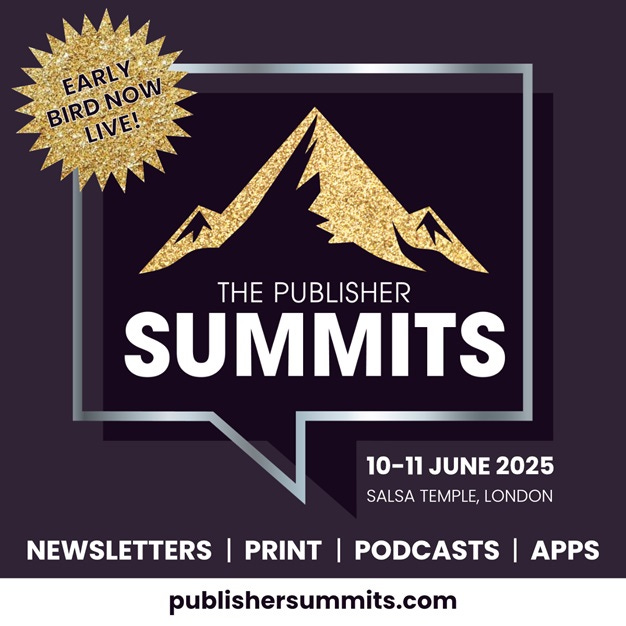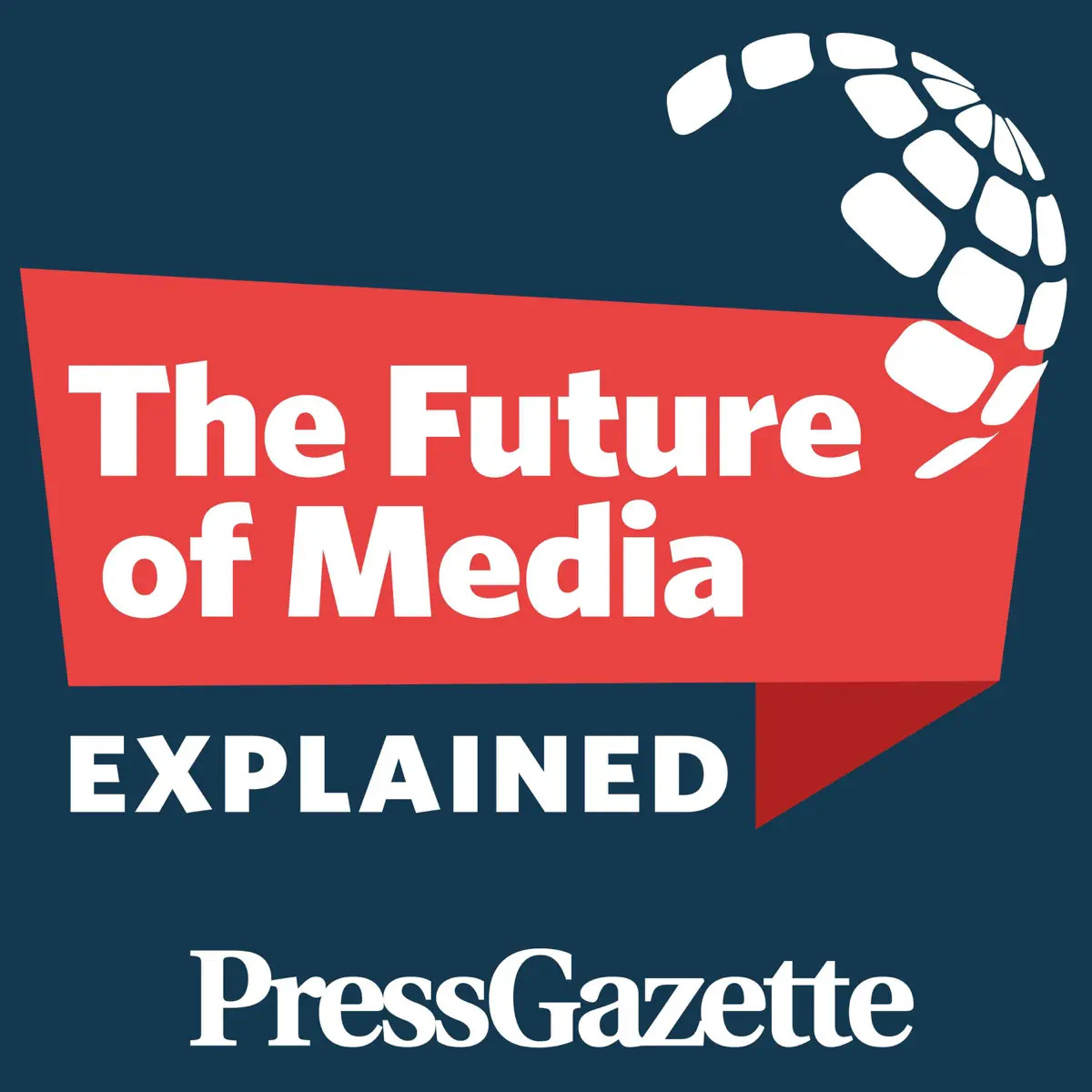Publishing bosses look to world after search | FT goes long on video
And former Mirror editor Alison Phillips talks the future of tabloid journalism as she prepares to launch her new crime podcast with a former Metropolitan Police chief
Good morning and welcome to your weekly Future of Media update from Press Gazette on Thursday 8 May, brought to you this week in partnership with The Publisher Summits - a two-day event in London dedicated to newsletters, print, podcasts and apps.
Come and learn from leading publishers on which product strategies drive audience and revenue growth, with 20% off ticket prices for Press Gazette readers using the code PRESSGAZETTE at checkout.
At three big publishing conferences this week a recurring theme emerged: we need to be preparing for the end of Google search as the main way readers discover publisher websites.
In as much as you can predict anything about the future of news, a consensus is emerging that generative AI will profoundly upend search.
CNN chief Mark Thompson and Economist editor Zanny Minton Beddoes shared conflicting views on how this seismic shift impacts publishers while speaking at the Sir Harry Summit.
Earlier this week we heard from OpenAI's content chief Tom Rubin, speaking at the World News Media Congress in Krakow, on why the Google "ten blue links" era of web browsing is over.
And the idea that we have reached peak search was also widely discussed at the PPA Festival. Google-baiter-in-chief Ricky Sutton warned that publishers have two years at most to prepare for life after Google.
In my view that means focusing hard on creating distinct content which serves your core audience (rather than harvesting drive-by readers with curiosity-gap headlines on Google Discover and spending too much effort creating generic articles optimised for search).
This is something the Financial Times team have been masters at and it is a philosophy they have taken to their video strategy. We found out why the FT video team is producing longer videos, less often, which are targeted firmly at serving subscribers (but are also made available for free on Youtube).
And finally, I spoke to former Mirror editor Alison Phillips about her new weekly podcast Crime Scene, which she is co-hosting with former Met chief Bernard Hogan-Howe.
I asked her about the current boom in crime podcasts, the future of tabloids and her reflections on her time as editor of (possibly) the shortest-lived national newspaper in UK publishing history. You can also listen to our conversation in our latest podcast.
As an aside, when Hogan-Howe stepped down from the Met in 2017 I reflected that he "had a record for arresting journalists which Kim Jong Un or Turkey’s president Erdogan might have been pleased with". His force unlawfully intercepted the call records of journalists in order to find and punish entirely legal sources. It also memorably served a prevention of harassment notice to a local newspaper journalist because they doorstepped a convicted fraudster suspected of ripping off one of his readers.
But I am a believer in rehabilitation, so welcome to the world of media Bernard!
From our sponsor
The Publisher Summits: 10th-11th June 2025
Do you have a newsletter, magazine, app or podcast? Do you want to know how to improve them, grow audiences and optimise revenue?
Whether you're a senior executive in charge of strategy or an editor responsible for content, there will be plenty to learn at The Publisher Summits.
See the agenda, tickets and more at publishersummits.com
*20% off ticket prices for Press Gazette readers using the code PRESSGAZETTE at checkout*
On Press Gazette:
Left to right: CNN chief executive Mark Thompson, BBC News chief executive Deborah Turness, The Economist editor-in-chief Zanny Minton Beddoes and BBC analysis editor Ros Atkins. Picture: Reuters/Chris J Ratcliffe
‘Search is going off a cliff’: CNN, BBC and Economist chiefs on future of news
“That is, with respect, blindingly obvious.”
Why the Financial Times has gone long with video
The FT cited internal data that shows those who visit its website and app regularly are 20 times more likely to watch FT films than those who are less engaged.
Ex-Mirror editor Alison Phillips on true crime, the future of tabloids and positive news
Asked for her views on future revenue models for tabloid journalism, Phillips said: “It’s not necessarily going to be a full on subscription model for anyone, but I think you can look at things like Mail+ and then what The Sun’s doing at the Sun Club and you can see that there are some opportunities for distinctive, high-quality content, but within the mainstream environment.”
Also in Press Gazette this week:
*JOB ALERT* Press Gazette is recruiting a reporter/feature writer
OpenAI content boss on Google ‘ten blue links’ and arrival of ChatGPT search
Impartial Reporter stems print decline and grows digital sales as it turns 200
Sun Madeleine McCann documentary to be shown first on Channel 4
UK local publisher ‘deeply concerned’ about Facebook account ban ahead of election
50 biggest UK news websites: Substack enters ranking in March
Evening Standard reports £20m loss in slight improvement versus 2023
Ofcom says enforcement action coming as Press Gazette highlights Facebook offences
Latest podcast: Alison Phillips on crime, tabloids and positive news
Former Mirror editor Alison Phillips talks to Press Gazette's Dominic Ponsford as she launches a new weekly podcast called Crime Scene with former Metropolitan Police chief Bernard Hogan-Howe.







